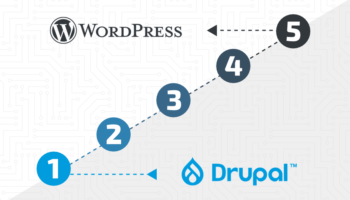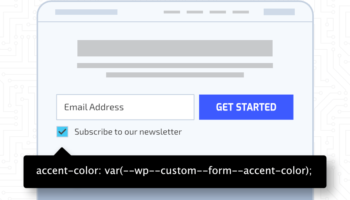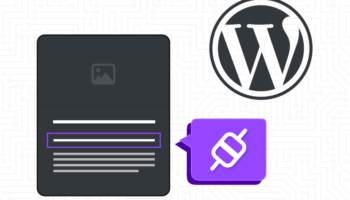 So your company has decided that it’s time to create a new website. What now? There are a multitude of options for managing you online presence and if you’re like most people, it won’t be easy to distinguish them all at first glance. Not a problem, your first step should be to take stock of your needs and capabilities. Once you know what you are capable of, it is a lot easier to identify the best way to build your website.
So your company has decided that it’s time to create a new website. What now? There are a multitude of options for managing you online presence and if you’re like most people, it won’t be easy to distinguish them all at first glance. Not a problem, your first step should be to take stock of your needs and capabilities. Once you know what you are capable of, it is a lot easier to identify the best way to build your website.
Do you plan to have regular updates or change your site’s content on a regular basis? If your answer is “yes” and you don’t have a dedicated team of programmers on staff, then there is only one real viable option and that is a CMS (Content Management System). With the maturation of CMS websites, everyday users are now able to take control of their websites without getting bogged down by three-letter-acronyms and code.
However, it’s not all good. As we’ve seen in the internet marketing industry, content management systems can be both a blessing and a curse. For many companies, it makes sense to make content changes and additions internally, but what happens if you want to handle something a little more involved and don’t have the technical know-how? What if you want to make your new site accessible to mobile and tablet users and how will you manage your online marketing efforts over time? While content management systems have made blogging simple and page creation straight forward and downright intuitive, there are many optimizations that can still be difficult to make.
So, as you may have been able to surmise from the title of this blog post, here at Hall, we’re fans of WordPress, but we are certainly not blind to its current limitations. WordPress has strayed far from its humble beginnings as a blogging engine to become the world’s most popular website creation tool. In that time the platform has mastered certain capabilities, while in other areas it still has room to grow. Here are some of the pros and cons that we see in WordPress as a CMS.
Pros:
- Easy Content Updates – This is the possibly the number one reason to use a CMS. Basic sites can be set up with easy access to all on page text and images. Beyond that, with a little upfront technical work, there are many ways to set up custom modules and text areas which, once implemented, can easily be accessed and edited by anyone with rudimentary computer skills.
- SEO Integration – There are many SEO plug-ins for WordPress that can be set up to help you get a handle on your search engine results. These plug-ins allow for basic SEO additions to each page, including Meta Title, Meta Description and H1 tags (words and phrases parsed by search engines to determine search results listings). Some of these plug-ins can even give you an estimate on how well your site is optimized for SEO. It’s safe to say that WordPress’ strength in this area is the availability of great third party plugins to suit your needs.
- Flexible E-commerce Options – There are also plug-ins created for e-commerce applications that work within the existing themes to allow for cart processing, ordering, and even shipping. There are suitable e-commerce integrations for nearly any size site or application, and many basic plug-ins are free.
- Optimized for Tablet/Mobile/PC – Properly setting up a responsive theme for your site is the best and most efficient way to ensure users on PC’s, mobile devices and tablets all receive a positive experience on your site. It insures that your content and branding is consistent and usable on all devices. On a responsive sit,e the only thing should change is your layout/styling depending on what device is being used to access the site. WordPress offers simple responsive starter themes and, in the hands of a skilled developer, the opportunity to create complex custom themes with this same functionality.
- Built-In Blogging – WordPress started as a blog engine, and though it has changed considerably since, blogging is still at the platform’s core. Therefore setting up and maintaining a basic blog is simple and intuitive.
- Big Companies Use It – The WordPress platform is completely scalable and is used for everything from one page blog sites to massive international news sites. One of the strongest statements for WordPress is the number of large companies that use it. Current users include Time Inc., Sony Music, Xerox, The New York Times, and even AMC (home of Mad Men, Breaking Bad and The Walking Dead).
- Large Developer Community – The WordPress developer community is the largest of its kind. Users are constantly improving the site software as well as constantly creating and revising custom plug-ins for various uses. WordPress is used for over 20 percent of all the websites on the internet. Its popularity attracts skilled developers and hobbyists alike, and one of the most amazing things about WordPress, is that anyone can contribute to the source code that makes the platform better.
Cons:
- Custom Layouts and Themes Can Be Tricky – As with most CMS solutions, WordPress offers plenty of basic themes and layouts to choose from. But what if you don’t want your site to look like everyone else’s? Making truly custom websites does require a certain amount of development know-how and time. Working with experienced responsive website designers and developers is the best way to make sure your site fits all of your business’ needs. Of course once you have your custom site set up, it’s possible to edit content and create new pages and posts with little to no previous experience.
- WordPress Software Needs to be Updated Regularly – WordPress is essentially a large piece of dynamic software running on your website’s server. Various updates and patches get released every year to combat pirates and hackers as well as to provide improvements to code and themes. You will want to make sure you have the proper skills to make these updates yourself or that you work with a web development company to ensure your site software is always up to date.
- Web Development and Marketing Experience Helps – Even a perfectly built flashy new website will not inherently draw traffic. In order for your site to be successful, it will need a concerted, ongoing marketing effort to draw users and customers in. Creating a website is in a sense the simple part of online marketing, far more complex, is ensuring that your site gets found. Most websites require an ongoing SEO marketing plan to stay competitive in their online sector. For this, we recommend either having someone in-house with online marketing experience who can manage your site or working with an internet marketing agency. Staying proactive and having a specific marketing plan is the best way to ensure your website is attracting the users that are in a need of your service or products.





